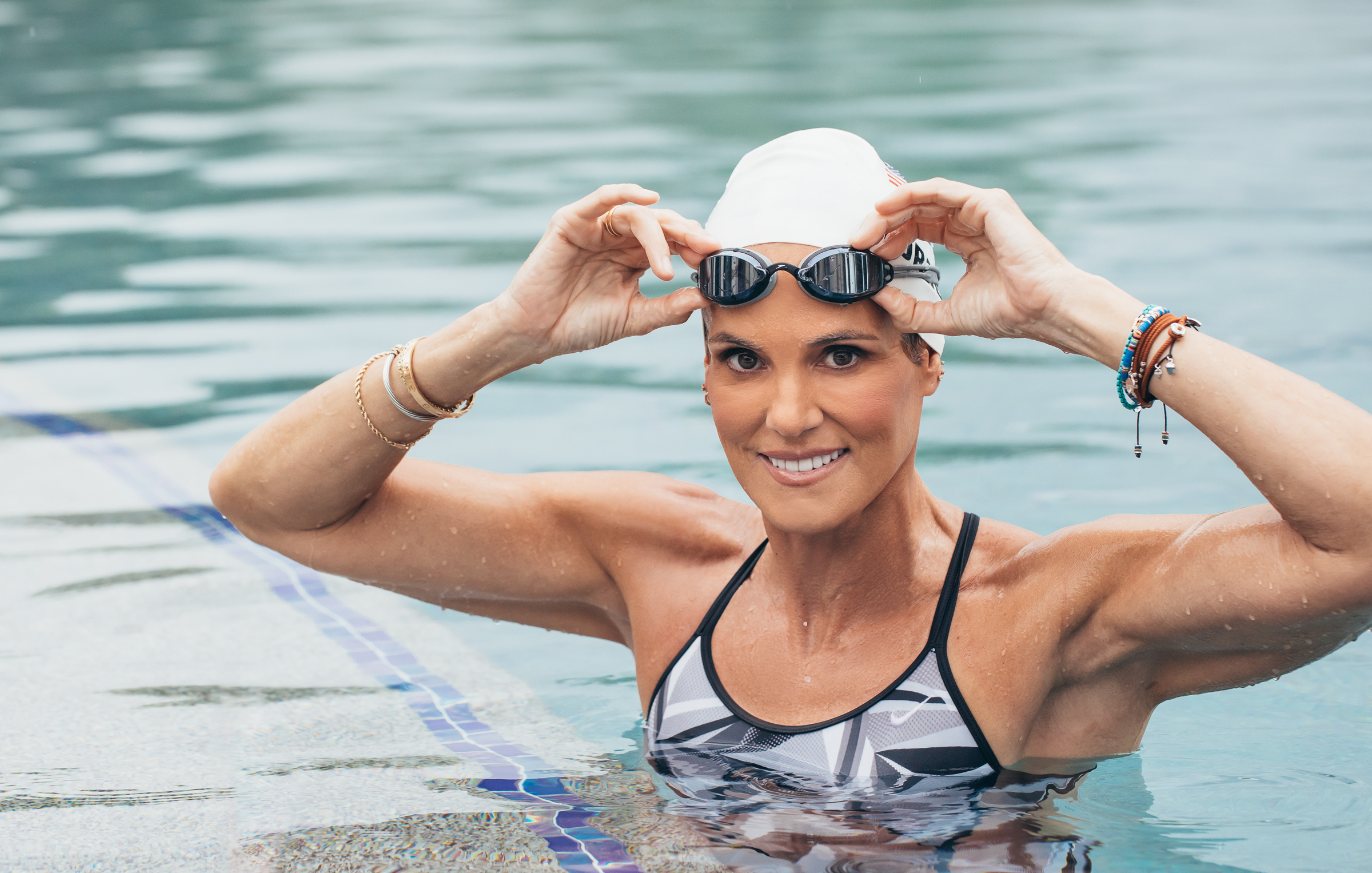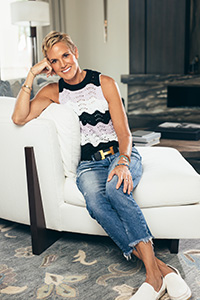
Last updated on August 6th, 2024 at 01:22 pm

Dara Torres
Dara Torres’ remarkable swimming career has inspired generations of Americans. She broke her first world record at age 14 and went on to win 12 Olympic medals between 1984 and 2008. She won her last two medals at age 41 as the oldest swimmer ever to earn a spot on a U.S. Olympic team. And she did this as one of the more than 25 million Americans living with asthma, a chronic lung disease that can make it difficult to breathe. Dara shared her asthma journey and advice for others with NIH MedlinePlus Magazine.
Tell us how you were diagnosed with asthma.
Until I was 25, I actually had no idea I had asthma. I began swimming at an early age, and I was always known as a “drop dead” swimmer. I would swim my races and always slow down at the end. And I wasn’t sure why that happened. This happened no matter what training I did, so I just thought it was the way I was built.
In 1992, after my third Olympics, I was running with a friend in Gainesville, Florida on a hot summer day with very thick, humid air. My friend told me I was wheezing. And I said, “Oh yeah, I always do that!” She works in the medical profession and asked if I had ever been checked for asthma. I said I no, I had not. I told her I didn’t think I had asthma but would get checked. Shortly after that I went to the doctor and, sure enough, I was diagnosed with asthma.
After taking seven years off from competitive swimming, I decided to make a comeback and swim in the 2000 Olympics. Since I was in my 30s at that point – pretty old for swimmers – the coach wanted to know how my body was holding up and if I had any ailments. I told him that everything was fine, but I did have asthma. He urged me to see a doctor who specialized in helping underwater athletes who have asthma. That doctor evaluated me, and it was a turning point because they put me on a much better treatment regimen. From that point on, I was able to hold my breath more and not slow down at the end of my races.
What were your thoughts after receiving your asthma diagnosis? Did you wish you had been diagnosed earlier?
Yes, I thought to myself, “What could I have done? Would I have been faster? Would I have won other races? What would have been different for me if I had been diagnosed earlier in life?” It definitely made me scratch my head. But I’m one of those people who feel like things happen for a reason, and I was able to come back and compete and have success later in life.
What was the improved treatment regimen you started in 2000?
I had an inhaler that I used every morning when I woke up. And I had a rescue inhaler that [I would take two puffs of] 30 minutes before I started my swimming training. I would also use that before a swimming meet.
In 2008, at my fifth Olympics, I was 41, and it seemed like everything was questioned because of my age. Some had the gall to suggest that I didn’t actually have asthma and was taking the asthma medication just to gain a competitive advantage. At the time I responded by saying my advantage is trying to breathe like everyone else.
What message do you have for young swimmers and athletes with asthma?
If you feel yourself having a hard time breathing or you hear a wheezing in your lungs, definitely go get it checked out by a health care professional. I wish I had when I was younger. It is nothing to be ashamed of. Just know you are trying to have the same breathing capacity as everyone else.
What do you do now to stay healthy and fit?
I had an eating disorder when I was in college, so I would say I eat reasonably and nutritionally. I eat in moderation, and still work out every day. I actually haven’t been swimming a lot lately, but I do a lot of other things. I go for a run twice a week. I like to box. I do Pilates. I do a great work out called Solid Core as well as a Total Body Resistance Exercise class. I really mix it up now, because I used to do the same routine all the time. But I found that your body can plateau and get used to that and not see improvement.
Has your fitness routine changed as you have gotten older?
You do feel your aches and pains more! I’ll get a good night’s sleep and wake up feeling like my back is killing me. My advice is to listen to your body, and allow yourself time to recover. I see some women working out three or four times a day. They are not getting anything extra out of this. Do one good workout and give your body a chance to rest and recover.
What projects are you working on now?
I’m excited about a new venture partnering with Mariel Hemingway to give motivational talks about women our age. I also work on an all-women’s sports talk show on CBS Sports Network called We Need to Talk.
